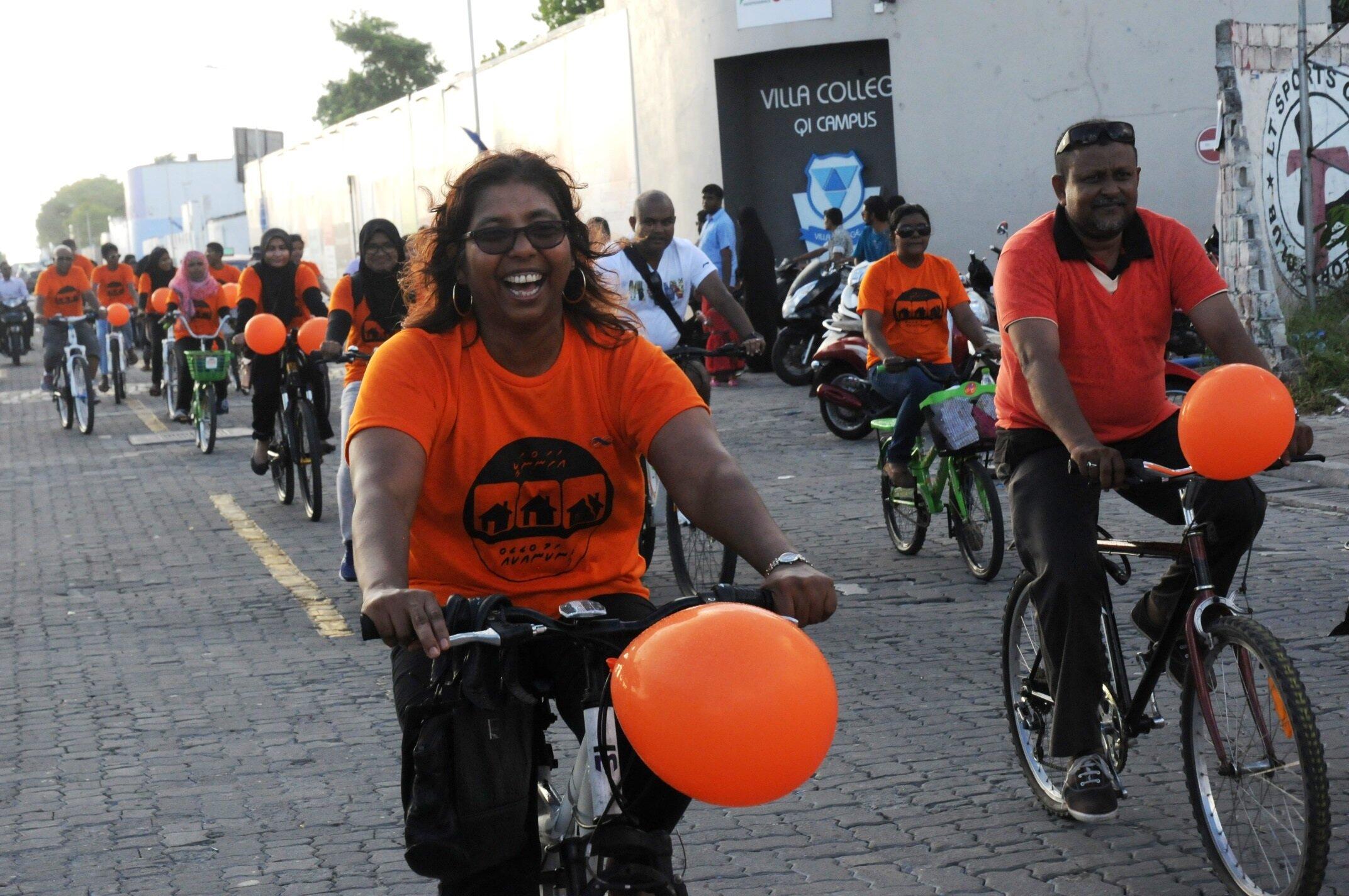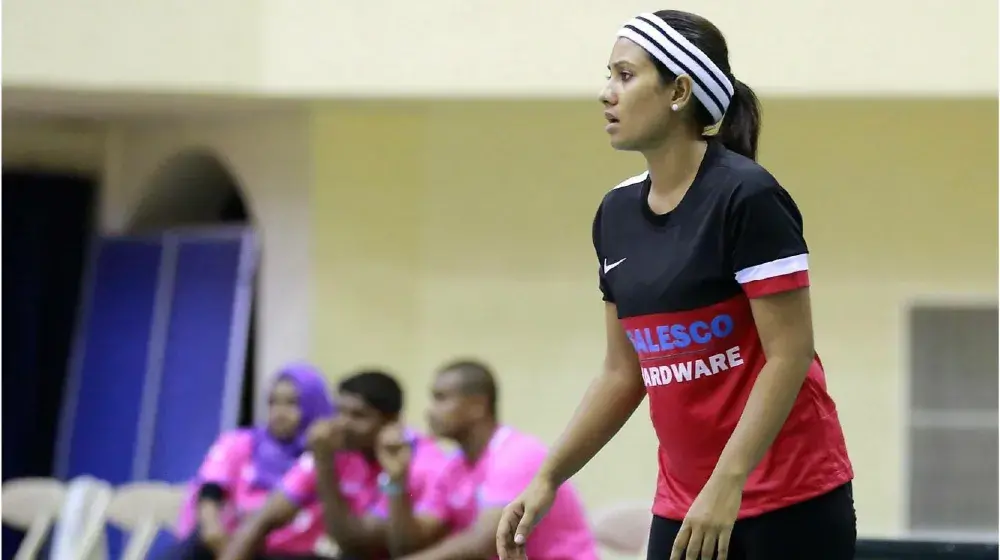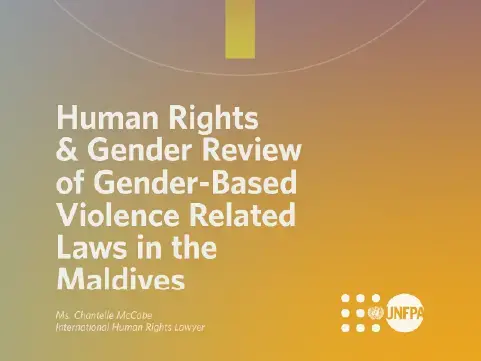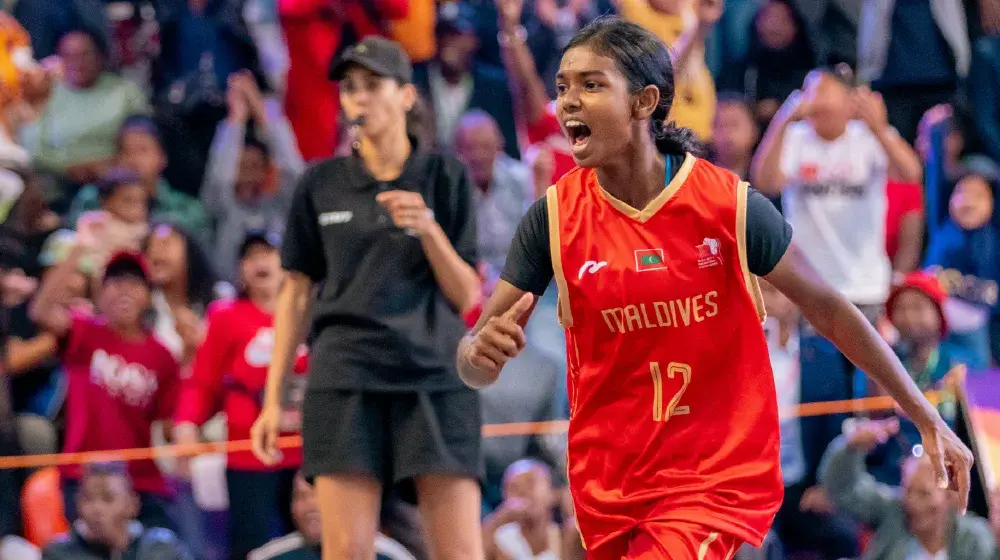I was among those riding bikes through the busy streets of Male' yesterday, against traffic and desperate to cross to the other side. We were around 100 cyclists wearing orange, maneuvering around the roads with assistance of the traffic police. As I cycled, I recalled the incident when I was 16 when most people were not against but not helpful either, in providing the support I needed. Despite the onlookers and bystanders who didn't help, and against the onslaught of traffic and bigger, meaner vehicles that hindered our progress, we made it to finish line.
As a gender based violence survivor and a cyclist, what I needed were people to be more empathetic because in these two occasions, I was the one with less power and needed people and institutions to understand and facilitate my access to help. The institutions can operate in ways to facilitate access to services without prejudice and blame, especially for the powerless. Unlike the organized bike ride, the violence women go through is not planned, and the road to get through the ordeal isn't cleared of oncoming traffic and obstacles. But we can clear the road for the survivors if services are made available to the most vulnerable, and then everyone can enjoy equitable access.
I hope more people will have the courage to take action and demand equity in access to services.
This story spotlights 16 Days of Activism to End Violence Against Women. It was written by UNFPA's Assistant Representative in the Maldives, Shadiya Ibrahim





